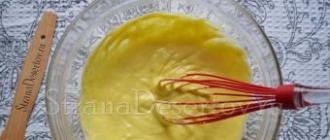Sensitive nipples have become. Why nipples harden in women: reasons. A new cycle will begin soon
The very existence of the breast raised many questions among men. In 1300, the physician Henri de Mondeville wrote to the king about three reasons for placing the breast in this particular place:
- This is the best way to see it.
- The chest warms the heart.
- Breast weight helps women maintain abdominal strength.
By 1840, knowledge about breasts was still very scarce. For example, the doctor Asti Cooper said that the chest helps lower-class women withstand very strong blows in fights (drunkenness).
Let's take a look at what is currently known about breasts and nipples and how to properly handle them.
Breast structure
The breast consists of adipose tissue, lobules, milk duct, Cooper's ligaments. The lobules produce milk, the milk duct carries it to the nipple, and Cooper's ligaments support and shape the breast.
Breastcancerbd24.blogspot.com
Many women have different breasts, and this is normal. Paired organs are not perfectly symmetrical.
Breast and nipple facts
1. Nipples may not always be the center of pleasure
Dr. Debbie Herbenick, author of The Coregasm Workout, says nipples may not be the most sensitive point, even on the chest. For example, the tops and sides of the chest in some people may be more sensitive or generally the most sensitive on the body.
Dr. Lowe made a separate video on how to properly touch your breasts. Take a look to understand the scale of the missed opportunity.
2. Orgasm from nipple stimulation is possible
Researchers Sex on the brain: What turns women on, mapped out. from Rutgers University using MRI proved that stimulation of the nipples activates the same nervous system as genital and clitoral stimulation. True, nothing beats the effect of the impact on anything. The nervous system is the same, but the strength of the impact is different.
 newscientist.com
newscientist.com So, theoretically, orgasm from nipple stimulation is possible, but it's still rare.
3. Evolution has hammered on male nipples
Women need nipples to remove milk and feed the offspring. But the purpose of male nipples has long been an object of scientific interest. The fact is that the nipples are formed in the womb before the genitals, since men and women are created according to the same genetic code.
At 6-7 weeks of gestation, a gene on the Y chromosome induces changes that lead to the development of the testes, the organs that produce and store sperm. After about 9 weeks of pregnancy, the testes begin to produce testosterone, altering the genetic activity of cells in the genitals and brain. But by this time the nipples are already formed. Therefore, they remain a rudimentary formation.
Scientists believe that over time, men's nipples did not disappear, because this is not important for evolution.
4. Nipples can be of different sizes, shapes and colors.
Many women worry about how their nipples look, but you shouldn't. Dark, inverted, large, small, brown, light - these are all the norm. Here are all the varieties of nipples in nature.
 imgur.com
imgur.com Areolas, the colored areas of skin around the nipples, are just as varied. They can be darker or lighter, very small or large. And areola hair is normal. During life, the amount of hair on them changes. And during pregnancy, the nipples and areolas can get larger and darker.
The little bumps on the areoles are called the areolar glands, or Montgomery's glands. They are named after the scientist William Montgomery, who first described them in 1837. They are also sometimes called "gummy bears". The fact that they exist is normal, but their purpose is unknown.
Eliza Port, head of breast surgery at Sinai Medical Center, says the areola glands may secrete small amounts of fluid, but they have no special function. Another point of view is that due to the texture of the glands, babies can use them to find their way to the nipple. But this is just a guess.
5. Three nipples are not uncommon.
Harry Styles and Mark Wahlberg live with three nipples. Statistics confirm that a similar anomaly, which is also called a supernatural nipple, is more common in men. Rates range from 0.22% to 5.6%.
In theory, extra nipples can appear along the milk lines that start in the armpits on each side and end in the groin.
Usually this is still one extra nipple. But there is a man Seven nipples in a male: World's second case report. with seven nipples and a man with a nipple on the foot Case report: ectopic nipple on the sole of the foot, an unexplained anomaly..
6. During menstruation, the breasts become tight and the nipples are hypersensitive.
Dr. Sherri Ros says this is due to increased levels of the hormones estrogen and progesterone 1 to 2 weeks before menstruation.
If you are one of those who have PMS, then during menstruation, your breasts will thicken, become heavier and more sensitive. Even touching your clothes may hurt your nipples. It is best to avoid caffeine and tobacco during your period, as they can exacerbate these side effects.
7. Implants will not interfere with breastfeeding
The implants are placed behind the breast or behind the muscle, so they will not affect breastfeeding.
But the pleasant sensations from touching will decrease - both in the nipples and in the chest. Even a complete loss of sensitivity is possible. Research Nipple-Areola Complex Sensitivity after Primary Breast Augmentation: A Comparison of Periareolar and Inframammary Incision Approaches. showed a connection between the size of the implant and the sensation: the larger it is, the lower the sensitivity.
Breast reduction can affect feeding, and it is almost impossible to predict this - a lot depends on the operation. If during it the nipple is moved, then the milk ducts will be cut out and breastfeeding will be impossible. However, more and more operations are done so as not to damage the nerves under the nipple and ensure blood supply.
It is best to warn doctors in advance if you plan to breastfeed in the future. Ask if the operation can be performed in a way that preserves the milk ducts.
8. Breastfeeding is harder than it sounds
There is a myth about the naturalness and ease of breastfeeding. But in reality everything turns out to be different. If you have any problems, don't be afraid to ask doctors for help or see a lactation specialist.
In addition, breastfeeding has consequences in the form of cracks and bleeding from the nipples. It is not harmful to your health, but it can be incredibly painful, so you will not want to breastfeed anymore.
During this period, nipples need to be looked after and moisturized. Talk to your doctor and find out which ointment is best for you. If the ointment does not help, see a specialist again. You may have a yeast infection. It is easy to cure, you just need to notice it in time.
Inverted nipples can also interfere with breastfeeding - it will be difficult for a child to catch on to them. In this case, silicone nipple covers will help. They put pressure on the areoles and nipples and break the small adhesions that hold the nipple inside.
9. Breast cancer is gender indifferent.
Yes, the ratio is different: every eighth woman and every thousandth man can get breast cancer, but this is not a reason to forget about the problem.
If you feel that your breasts have changed, or you feel any lump, be sure to see your doctor. Watch your nipples. If they peel, crust, harden, shed fluid, or are scratched, run to the hospital. These recommendations are important for both women and men.
Here you can see how to check your breasts:
Also, touch your breasts more often. Research has proven UC Berkeley and the Lawrence Berkeley National Laboratory. that it is not only pleasant, but also helps in the fight against breast cancer.
So, if you have noticed that ...

BREAST INCREASES
1. You are gaining weight
After puberty, the breast grows as the entire body grows. Why is weight gaining? You can eat more, move less, sleep less, or live under stress. Plus or minus a kilogram is natural. If you gain more weight, your risk of developing cancer increases.
2. You are waiting for your period, have started taking oral contraceptives, or are pregnant
Hormones affect breast size. If both breasts are enlarged, there is nothing to worry about.

CHEST REDUCES
3. You are losing weight
Breasts are made up of fat, so if you are losing weight, it will be the first part of your body where you notice it. If your weight and breasts are decreasing for no apparent reason, see your doctor. After all, it could be hyperthyroidism or another disease.
4. New menstrual cycle
If the breast enlarges before menstruation, then after it the swelling will go away and it will decrease. There is no cause for concern.

ONE CHEST BIGGER THAN ANOTHER
5. Nothing special
The breasts are not symmetrical, so if they always had different sizes and shapes, that's okay.
6. Breast cancer
If the shape of one breast changes, it's time to get tested for breast cancer.

SKIN IRRITATION UNDER BREAST
7. Allergy
This happens when the bra underwires are made of nickel, the soap doesn't wash off after bathing, or you were wearing a sweater that irritates your skin. A hydrocortisone ointment will help. If the irritation persists after a few days, see your doctor.
8. Intertriginous dermatitis
Or diaper rash. Very often in the summer, the skin under the breast is rubbed and inflamed. An antibiotic, steroid, or hydrocortisone ointment will relieve irritation, and a properly fitting bra will support your breasts and prevent recurrence.
9. The linen is already stale
Rare washing does preserve the laundry, but bacteria or fungi can lodge in it. The skin under the breast sweats a lot and it is very good for them.

YOU HAVE NOTICEABLE STRETCHES
10. Your weight jumps
When the weight jumps, the chest grows and shrinks. Because of this, stretch marks occur. This often happens after pregnancy and in women with thin, inelastic skin.

VERY DARK OR LIGHT Nipples
11. Nothing special
No, this is not cancer. Each woman's nipples are colored differently. The main thing is to be symmetrical.

VERY LARGE OR SMALL Nipples
12. Nothing special
Our bodies are just different. If they are symmetrical, there is no problem.

HILLS ON AREOLA
13. Nothing special
The breast is for feeding babies. These tubercles are the exits of the milk ducts. Sometimes they increase slightly, so if the nipple is surrounded by small bumps, you are fine.

ONE LARGE HILL ON THE AREOLA
14. Benign cyst or malignant neoplasm
Get tested as soon as possible to see if there is any cause for concern.

HAIR AROUND THE Nipple
15. Polycystic ovary
If you start to grow hairs around your nipple, your testosterone levels may have increased due to polycystic disease. Other symptoms are acne and irregular periods. Polycystic disease can lead to infertility, so see your doctor.

Nipples itching
16. Shampoo or soap residues irritate the skin.
Rinse skin with water and lubricate with hydrocortisone ointment.
17. Allergy to clothing
This could be a reaction to the dye of a new bra or a wool sweater. Lubricate your nipples with hydrocortisone ointment and change your clothes.
18. A new cycle will start soon
Sometimes hormonal changes cause itching.
19. Paget's disease
Or breast nipple cancer is a very rare disease. Symptoms include itchy nipples and areoles, flaky skin, a flattened nipple, and yellow or bloody nipple discharge. Urgently see a doctor.

CHEST PAIN AND Lumps
20. A new cycle will start soon.
Breast structure and sensitivity may change depending on the phase of the cycle. See your doctor. One consolation, if you have bumps, but no pain, then most likely it is not a tumor.
21. Too Much Caffeine
For some people, caffeine causes chest pain, so just start drinking less coffee, tea, and soda and the problem will go away.

WHITE MUDDY DISCHARGE FROM NIPPTS
22. Something stimulates milk production
Breasts are needed to feed babies. If the discharge is like milk, it looks like something is stimulating milk production, even if you are not pregnant or caring for a small child. The doctor will select the medicine for you.
23. Side effect of antidepressants or antipsychotics
Some medications increase levels of prolactin, a hormone that stimulates milk production. In most cases, this is completely safe, albeit unpleasant.
OTHER DISCHARGE FROM THE TEAT
24. Benign neoplasm
Known as papilloma. See your doctor.

Nipples solid
25. you are horny
If the nipples are symmetrical but firm, there is nothing to worry about. The muscles around the nipple just contracted. This is usually associated with sex.
26. Are you cold
If it's not about sex, then the simplest explanation is cold. Just keep warm.

SUCKED Nipple OR Nipple OR BREAST CUTTING
27. Breast cancer
Any dents can be a sign of cancer. You are URGENT to see a doctor.

SEALING IN THE BREAST
28. You are fine
Now it's just another phase of the cycle, when the breasts become denser. This is fine. Lumps in the breasts, which could mean something serious, can only be detected with mammography.
Veins are visible through the skin
29. Risk of skin cancer
Light skin is usually pale and translucent. If so, you are at a high risk of sunburn, but as long as you do not overuse tanning and use sunscreen, there will be no major problems.

CHEST LIKE ORANGE
30. Breast cancer
If a smooth breast suddenly becomes uneven like an orange peel, and the halos and nipples are hard, it may be cancer. You are URGENT to see a doctor.

Lump on the chest
31. Benign cyst
If it is round and smooth and can be moved, it may be a fluid-filled benign cyst. This is not a tumor. See your doctor.
32. Breast cancer
Most often, pain and growths in the chest are the result of hormones. Every time you come across them, the question arises: is it cancer or can it become cancer? Only a doctor will answer.
Filled with secrets and interesting processes. So, the fairer sex can reproduce their own kind. This process is completely dependent on the work of hormones. This article will tell you why sensitive nipples in women may indicate certain pathologies. You will also learn about what may be the causes of this symptom.
Sensitive nipples - how's that?
Before talking about the reasons for this manifestation, it is worth understanding what it means on the nipples. The described area is permeated with nerve endings and receptors. They are responsible for responding to touch and irritation.
Many women may hardly feel light stroking in this area. Others note even the slightest touch. What does it depend on? Why did the nipples suddenly become sensitive? Let's consider the main reasons.

Pregnancy
If you suddenly develop sensitive nipples, pregnancy is possible. Almost 80 percent of the fairer sex noted an increase in the very early stages of bearing a child. This is due to the change and restructuring of the body.
The nipples are sensitive during pregnancy in order to protect the reproductive organ from interruption of fetal development. The explanation for this statement is quite simple. When the mammary glands are stimulated, oxytocin is produced. This hormone affects the contractility of the uterus. When the nipples become sensitive, the woman simply avoids stimulating them. This helps to maintain the pregnancy.

Approaching a new menstrual cycle
Women have very sensitive nipples before their period. This is due to the following pattern. In the second phase of the cycle (after ovulation), the production of progesterone begins. This hormone helps the endometrium grow to a certain thickness and contributes to the maintenance of pregnancy. This substance reaches its maximum in about a week after the beginning of the second phase. It is at this moment that a woman may notice an increase in the mammary gland and its increased sensitivity.
Often, the fair sex confuse this symptom with a possible pregnancy. Only time will help to understand the situation.

Ovulation symptom
The nipples can be sensitive during the release of the egg from the ovary. This is again due to the action of hormones. In the first phase of the cycle, estrogen predominates. It allows it to grow and acts on the endometrium. During this period, the female breast is as calm and soft as possible. With the approach to the middle of the cycle, the restructuring of the body begins. The release of latinizing hormone promotes the rupture of the follicle and the release of the egg from it. At the same time, this substance has an effect on the female breast. She is refreshed and more aroused. This leads to an increase in the sensitivity of the nipples and areolas.
This symptom occurs exclusively in the middle of the cycle. It is almost impossible to confuse it with pregnancy or the onset of menstruation.
Pathological processes
Nipples can be sensitive if any pathology is present in a woman's body. Often this symptom appears in hormonal diseases such as endometriosis, polycystic, uterine fibroids, and so on. In addition, various may be accompanied by an increased sensitivity of the nipples. At the same time, a woman may notice an increase and distortion of the shape of her breasts. At the same time, painful sensations and sensitivity persist for a long time and does not have a cyclical nature.
Also, mastopathy and some other diseases can be manifested by this symptom. These pathologies are completely harmless, but require timely treatment. Otherwise, complications and breast swelling may develop.

Individual feature of the organism
Nipples can be sensitive due to the individual characteristics of the structure of the skin. At the same time, a woman constantly (from the moment of puberty) notes this symptom. It is worth noting that there are few such representatives of the fairer sex. However, these ladies live quite normally with such a feature, it does not bother them at all.
Summarizing
Now you know the main reasons why a woman may have sensitive nipples. If you are suddenly worried about this symptom, then you should see a doctor. See your gynecologist or mammologist. Doctors will diagnose and establish the root cause of this manifestation. If necessary, you will be assigned a correction to help manage the disturbing symptom. Keep your health under control and don't get sick!
Despite the fact that it is the 21st century on the street and many issues have long been traditionally discussed openly and without hesitation, there are still some nuances that we still talk about in a “whisper”.
We often turn to the Internet community for help, wishing to satisfy interest and remain incognito at the same time. Among such intimate questions, you can find a desire to know more about the reasons for the nipples and how this happens.
Simplicity of physiology: how does nipple erection occur?
Each of us visually has a very good idea of the chest. At the same time, clearly delimiting and defining: this is a man's chest, and this is a woman's. But not everyone knows that there are many nerve endings in the chest that are located around muscle structures.
External stimuli provoke contraction of these muscle fibers, which ultimately leads to an erection of the nipples.
So, for example, speaking of physical arousal, the mechanism of "rising nipples" can be described approximately as follows:
- Touching irritates the nerve endings.
- In the process, a nerve impulse is formed, which is sent to the brain.
- After it is processed by the brain, there is an increase in blood flow to the mammary glands, including to the nipples.
- As a result, the nipples harden and "stand up".
If breast changes occur from the cold, then the essence of rising nipples in this case comes down to spasms of muscle fibers that form goosebumps on the skin: while the muscles contract, and there is a change in the shape, and sometimes even the color of the nipple, as well as the skin around it.
When is nipple rising a normal reflex?
So, you ask: is nipple hardening always normal? And what is the “norm” in this case, and what is the deviation from it?
The answers to these and other questions are contained in the reasons for the rising of the nipples and, oddly enough, in the frequency of repetitions of such a reaction. In this case, you should be especially careful to the fact that the reasons for the "female" are somewhat different from the "male".
What can cause nipple erection in women?
The reasons for the rising of the nipples in women include:
Temperature changes
Many have probably noticed that due to a decrease in air or water temperature, women's nipples become sensitive and stick out - this is a standard reaction to cold. However, this effect is not provided by a gradual decrease in temperature, but by its sharp changes, in most cases unpleasant, uncomfortable for the female body.
Sex drive
Expectation of sex, foreplay / preparation for sexual intercourse, sex itself is the most common cause of nipple hardening, and one of the main signs (indicator) of arousal in women, often confirming the pleasure of the process. Most often, it occurs as a reaction to stroking, touching.

Pregnancy period
During pregnancy, the breast as a whole changes. Naturally, both the nipples and the areola change. The nipples can increase in size, become rough, and their sensitivity increases.
In some cases, pain may be felt throughout the entire breast, or in certain parts, including the nipples. Do not worry about this - most often this is a normal physiological reaction to changes in the body. But, if you notice that the pain is getting worse, then in this case you should urgently consult a doctor for diagnosis and treatment.
Premenstrual syndrome
Nipple tenderness can be one of the symptoms of PMS. Before the start of a new menstrual cycle (on the eve of critical days), many women’s breasts seem to swell, gain weight, they note an increase in nipple sensitivity, and that they can get up from time to time.
As with pregnancy, you should not rush to the hospital at the slightest change. But if the sensitivity of the nipples is accompanied by pain, which remains after menstruation, then you should not delay visiting a specialist. Remember, at the time of the diagnosis, the timely treatment of the mammary glands will be ensured.
Incorrectly fitted underwear
If the size of the bra is larger than the girl needs, the nipples can rub against its inner surface, harden, coarse and "stand up".
Spontaneous nipple erection
This happens rarely and not in all women. This reaction is not associated with thoughts or feelings, and with their sensations. It usually does not last long, but at the same time it can have a recurrence during the day.
Psychological state / nervous excitement / tension
The individual characteristics of the nervous system can sometimes be expressed in the fact that the female breast hardens, and the nipples "rise".
What causes can cause hardening of the nipples in men?
The reasons for the rising of male nipples can be described as follows:
Excitation
Here, hardening of the nipples in men converges with a woman's response to sex. Sometimes nipples can be one of the strongest erogenous zones of a man, although this is considered a rarity and is not found in everyone.

Puberty
Nipples can harden due to hormonal changes. As you know, the reactions of the adolescent's body during puberty are unstable, therefore, the erection of the nipples can occur completely arbitrarily, both for a couple of minutes or for a longer time.
Intoxication
With an excess of alcohol in the blood in men, the nipples often stick out, but the areoles at the same time decrease in size.
Temperature changes
Nipple erection can occur from cold: it can be a reaction to interaction with ice, cold water and cold objects.
Diseases
In some cases, "raised" nipples in a man indicate the presence of viruses in the body or are the result of an inflammatory process in the body. During self-examination, it is necessary to pay attention to whether there are any discharge from the chest, especially purulent ones.
If they are available, it is necessary to make an appointment with a doctor, and as soon as possible, without postponing the visit "on the back burner."
In what cases should you urgently visit a doctor?
Having studied the reasons for the rising of the nipples, we can say that almost all of them are normal and harmless. Do not panic, get upset or hesitate if your nipples stand up - this is physiology. But still, there are cases when you need to pay close attention to your body.
We have already mentioned discharge from the nipples above - if there is one, then you should consult a doctor immediately. In addition, itching in the nipples, redness, or other changes that are noticeable during self-examination are evidence of ill health.
It is advisable to describe such deviations by seeking help and advice from a specialist.
Remember that with regard to health, it is better to play it safe and rule out the disease than to ignore a seemingly insignificant symptom and start the disease.
Video: what should healthy nipples look like?
The female body is very mysterious and includes many processes that directly depend on hormonal levels. It also affects nipple sensitivity. But what else can cause their increased susceptibility, what are the reasons for this phenomenon and whether it is associated with pathologies.
What is nipple sensitivity
The nipples are permeated with various receptors and endings that respond to touch and all kinds of stimuli. Most women may not feel anything when they are lightly stroked, but for some, any contact with outside factors provokes a reaction. What can it depend on and why do the nipples suddenly become overly sensitive? The reasons why this can happen:
- During the PMS period.
- During menstruation itself.
- Pregnancy.
- While breastfeeding.
It is then that the breasts and nipples begin to swell due to excess plasma flow. This is why the sensitivity of the nipples and breasts increases.
Pregnancy
Sensitive nipples are common during pregnancy. Statistics claims that 80% of the manifestation of excessive susceptibility of this zone in women occurs even at a very early stage, since the hormonal background begins to experience colossal changes. They become such in order to protect the genital organ from interrupting the development of the child, since when the breast is stimulated, oxytocin is produced. This hormone is responsible for the contraction of the uterus. When this area becomes sensitive and painful to touch the nipples, then the woman should avoid stimulating the mammary glands, which has a beneficial effect on the course of pregnancy, especially when she is in the early stages.
Naturally, such changes cannot be avoided, so this discomfort will have to be endured. To alleviate this factor, you can change the bra to fit your breast size and be made from natural fabrics.
 The susceptibility of the nipples is increased by the breastfeeding of the baby. At this moment, they not only react to touch, but also hurt a lot. The reasons for this are the wrong position of the baby or the mother, the simultaneous feeding from the bottle and breast forms improper suckling. Also, pain can occur due to untimely replacement of the chest pad. This increases the moisture content of the skin on the nipples, from which they become unnecessarily soft. The pain can provoke an inept termination of the feeding process and the separation of the baby from the mother's breast.
The susceptibility of the nipples is increased by the breastfeeding of the baby. At this moment, they not only react to touch, but also hurt a lot. The reasons for this are the wrong position of the baby or the mother, the simultaneous feeding from the bottle and breast forms improper suckling. Also, pain can occur due to untimely replacement of the chest pad. This increases the moisture content of the skin on the nipples, from which they become unnecessarily soft. The pain can provoke an inept termination of the feeding process and the separation of the baby from the mother's breast.
These symptoms can cause dryness, sores, or irritation of the nipples. Also, do not forget about uncomfortable underwear. At the time of breastfeeding, it is better to give preference to natural materials that were used during pregnancy.
PMS
Female nipples become very sensitive before menstruation. Why is this happening? In the second phase of the cycle, when ovulation has already passed, progesterone is actively produced. Such a hormone makes it possible for the endometrium to thicken to the required thickness and preserve the fetus. This substance reaches its peak 7 days after the start of the second phase. Then women begin to notice that the nipples have become much more sensitive, and the breasts have increased slightly. These reasons are often confused with pregnancy symptoms, but over time, things fall into place.
Ovulation
If the nipples suddenly become sensitive, then this may indicate the onset of ovulation, when the egg leaves the ovary. The reasons also lie in hormones. In the first phases, the presence of estrogen is more dominant. It enables the follicle to grow and affects the endometrium. At this time, the female breast is the softest and most relaxed, and when the middle of the cycle approaches, the body feels the beginning of reformation. A latinizing hormone is released, which affects follicle rupture and egg rejection. Along with this, this substance acts on the woman's chest. This is why she becomes more aroused and the nipples and areolas are very receptive.
Important! This factor occurs only in the middle of the cycle, so it cannot be confused with pregnancy or PMS.
The presence of pathologies
 The sensitivity of the nipples increases if there are any pathological processes in the female body. Often this symptom occurs when the patient suffers from hormonal ailments:
The sensitivity of the nipples increases if there are any pathological processes in the female body. Often this symptom occurs when the patient suffers from hormonal ailments:
- Myoma of the uterus.
- Polycystic disease, etc.
Also, the fact that the nipples have become more susceptible can be affected by the presence of neoplasms in the mammary glands. Along with this, an increase or deformation of the shape of the breast is observed, and the painful sensations do not give rest for a long period and each time they become more acute.
Mastopathy and other diseases of the mammary glands can cause sensitivity in this area. Such pathologies do not pose a particular threat to the health and life of a woman, but they require immediate specialized intervention. Since without adequate timely treatment, they can develop into tumors or acquire other complicated forms.
Individual predispositions
The sensitivity of the nipples can be explained by the individual characteristics of the human body and the skin. The causes of manifestation occur during puberty and are present on an ongoing basis. It is worth noting that there are very few such women, but at the same time they work and live normally, since the susceptibility of this area does not bring them discomfort.
Conclusion
When pain and sensitivity last for a long time, then it is necessary to consult a specialist and undergo diagnostic manipulations in order to exclude the presence of diseases. If this is due to hormones, then the doctor will prescribe medications and a special diet. Also, one should not forget about the psychological aspect: negative emotions, stressful situations, conflicts arising in an intimate plan, etc.
If there is a need to take oral contraceptives, then before using them, you need to consult a doctor who will advise a suitable drug. You should also properly care for the skin of the breast and nipples, using hypoallergenic products and intimate hygiene gels.





